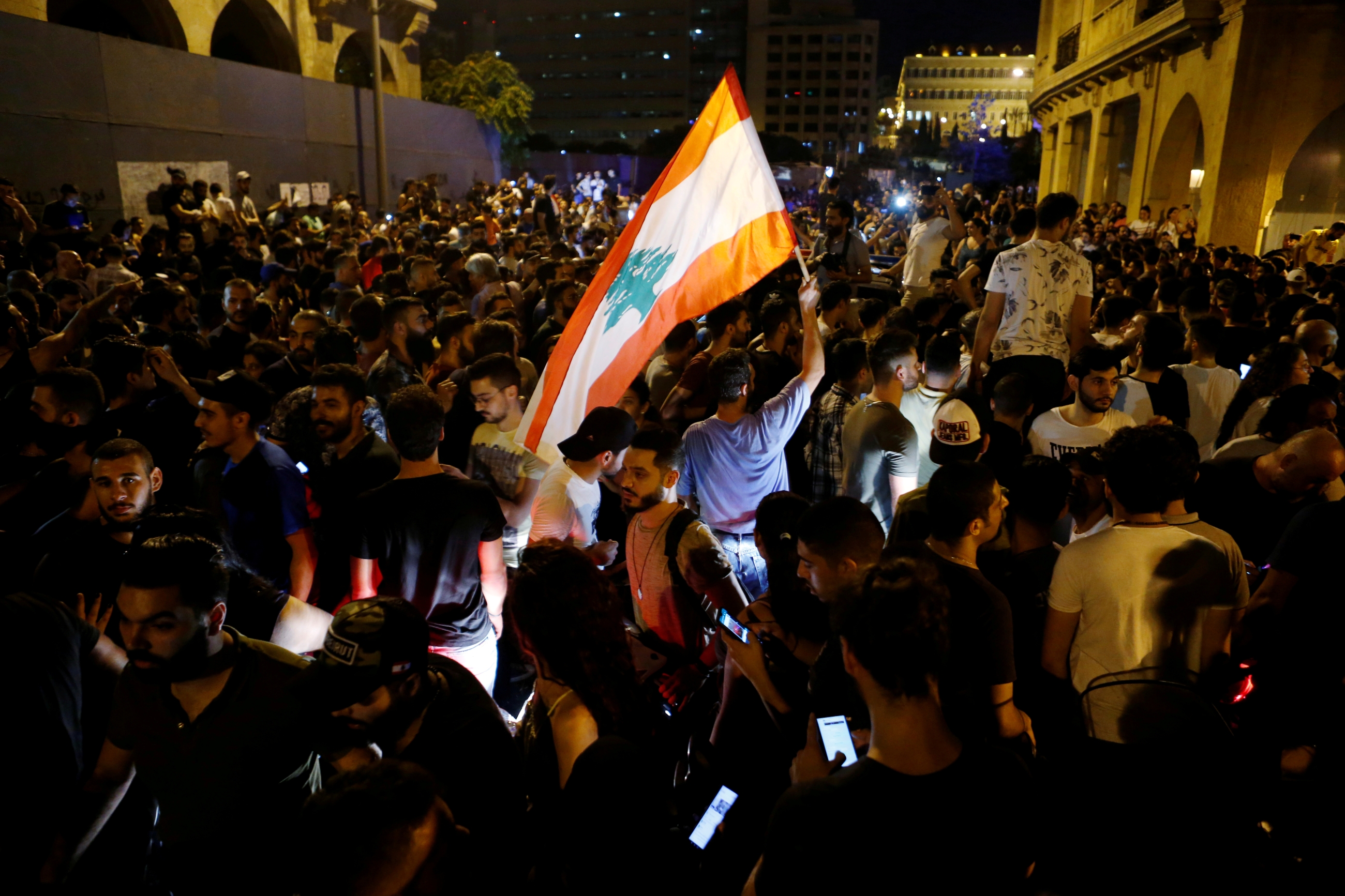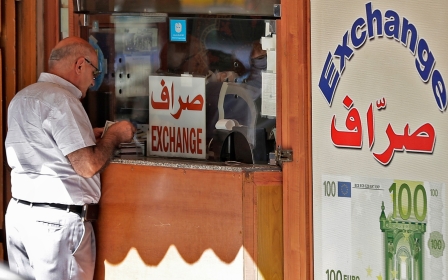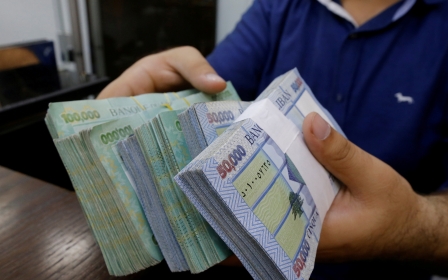Protests over economy erupt across Lebanon; government cancels WhatsApp tax

Protests have broken out across Lebanon with thousands of demonstrators blocking roads in various parts of the country to express their outrage over gloomy economic conditions.
In response to the demonstrations late on Thursday, the government reversed a decision to impose a tax on the texting and calling phone app WhatsApp, which had sparked the unrest.
Still, the protests persisted and major roads, including many leading to the capital Beirut remained blocked.
"We are not here over the WhatsApp, we are here over everything: over fuel, food, bread, over everything," a protester in Beirut who gave his name as Abdullah told Reuters news agency.
Demonstrators clashed with security forces in Beirut near the government's headquarters, where two people were wounded, according to Lebanon's state-run National News Agency (NNA).
Also, the bodyguard of an official opened fire on protesters as they tried to block the road where a convoy was passing in central Beirut; there was no immediate report on casualties, NNA said.
Lebanon has been enduring environmental crises, dismal economic growth, rising unemployment, crumbling infrastructure and growing pressure on the country's currency and banking system.
The government has proposed austerity measures and tax hikes to balance the country's budget, fuelling the rage of citizens who already accuse politicians of corruption and mismanagement.
The government has ordered all banks and schools to shut down on Friday because of the unrest.
"Lebanon is absolutely boiling tonight, something feels different about this time, it's spontaneous and rightly angry," Lebanese-British satirist and architect Karl Sharro wrote on Twitter on Thursday.
"The WhatsApp tax is just the spark, this is much deeper. A corrupt, incompetent political class has dragged the country down and created utter dysfunction."
Middle East Eye propose une couverture et une analyse indépendantes et incomparables du Moyen-Orient, de l’Afrique du Nord et d’autres régions du monde. Pour en savoir plus sur la reprise de ce contenu et les frais qui s’appliquent, veuillez remplir ce formulaire [en anglais]. Pour en savoir plus sur MEE, cliquez ici [en anglais].




